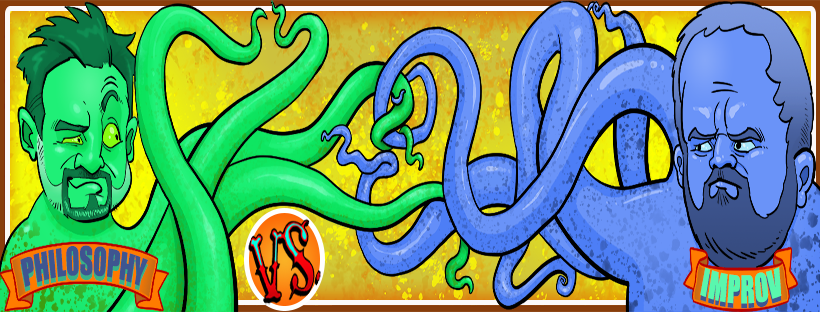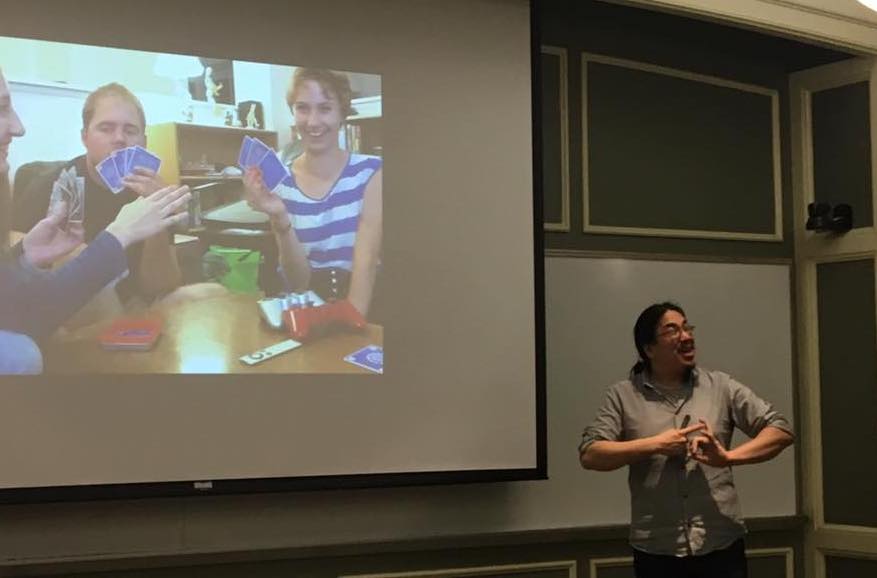
Thi Nguyen (pronounced “TEE NWEEN”) teaches at the University of Utah, and his first book, 2020’s Games: Agency as Art, makes a case for games being treated as a serious object of study for philosophy. Thi sees game analysis as not just a sub-division in the philosophy of art (aesthetics), but in the philosophy of action. How do games relate to other human activities with constraints, like customs, language, and more specifically performative acts within language (like saying “I do” during a marriage ceremony, where you’re not just describing that you do something, but actually taking action)?
On this recording (episode 24 of the podcast), Thi joins philosophy podcaster Mark Linsenmayer of The Partially Examined Life and improvisational comedy coach Bill Arnett of the Chicago Improv Studio to talk about games and improv, and to engage in a couple of improv scenes that explore the connection between the two.
This is the third philosophy guest for the Philosophy vs. Improv podcast, which alternates between guests from the improv world, guests from the philosophy world, and no guest at all. The overall format involves a lesson from each host, which they teach to each other (and the guest) simultaneously. This often results in unexpected synchronicity given the connections between two disciplines that stress the analysis of language, living deliberately, and quick thinking.
For another philosophically rich episode, see episode #20 in which St. Lawrence University’s Jennifer L. Hansen appeared to discuss the many aspects of the concept of “The Other” in philosophy.
Philosophy vs. Improv is a podcast hosted by Mark Linsenmayer, who also hosts The Partially Examined Life Philosophy Podcast, Pretty Much Pop: A Culture Podcast, and Nakedly Examined Music.
The Philosophy of Games: C. Thi Nguyen on the Philosophy vs. Improv Podcast is a post from: Open Culture. Follow us on Facebook and Twitter, or get our Daily Email. And don't miss our big collections of Free Online Courses, Free Online Movies, Free eBooks, Free Audio Books, Free Foreign Language Lessons, and MOOCs.
from Open Culture https://ift.tt/3qyoOCJ
via Ilumina

Comments
Post a Comment